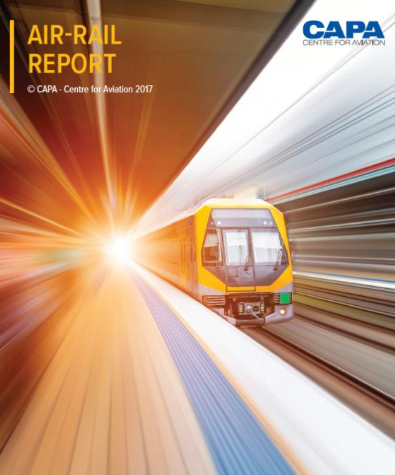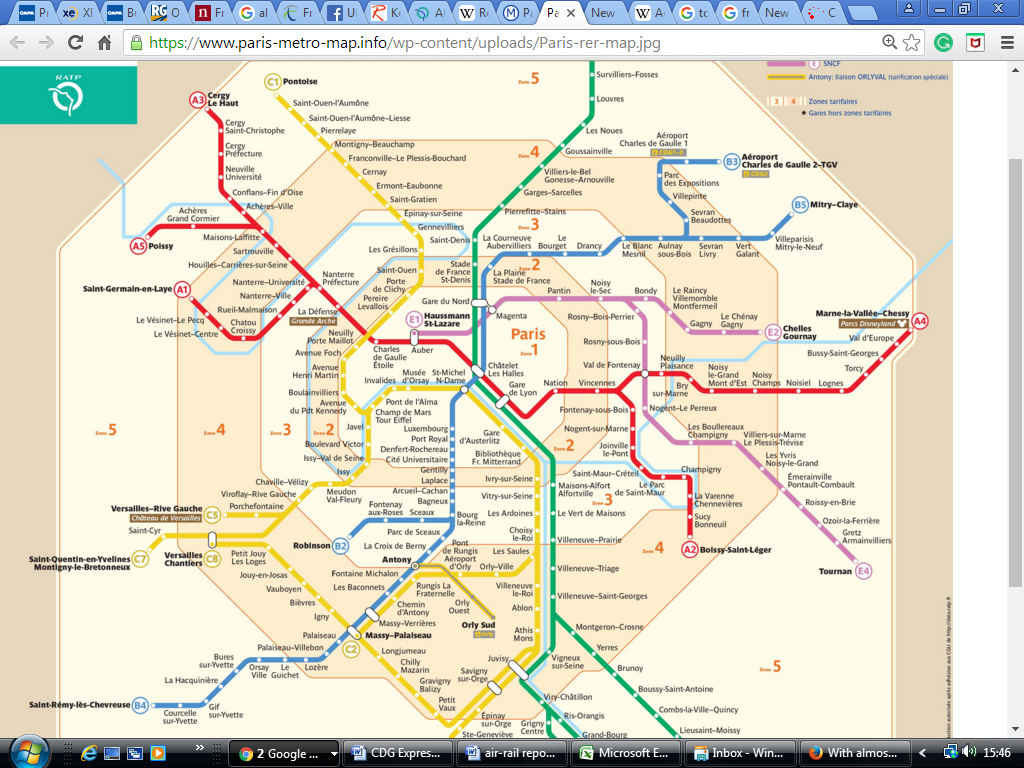Summary:
- All-French 'Hello Paris' consortium of Keolis and transport operator RATP Dev selected to operate new 'CDG Express' rail link;
- The 'CDG Express' will link Charles de Gaulle Airport with Gare de 'l'Est in central Paris and is due to open before the 2024 Olympic Games;
- The new rail link will offer journey times between the hub airport and central Paris to just 20 minutes and will require a EUR1.7 billion investment in new track.
The connection is scheduled to enter into service on 01-Jan-2024 prior to the 2024 Paris Olympic Games. The contract includes a five-year operational preparation term (2019-2023) and a fifteen-year operations term (2024-2038). The consortium will operate the French multinational company Alstom's Coradia Liner train sets, providing a connection between the airport and Paris in 20 minutes along a distance of 32km - 8km of the track will be new, at a cost of EUR1.7 billion.
Project finance is from a consortium of SNCF Réseau, Groupe ADP and the French public sector financial institution Caisse des Dépôts. Previously, the government had intended to impose an additional airfare tax to pay for it.
LEARN MORE... The CDG Express and its origins were examined in a special 140-page report... CAPA - Centre for Aviation Air-Rail report (2017).
CAPA - Centre for Aviation Air-Rail report (2017).
The first peculiarity of this announcement is that it comes from the Environment Ministry rather than a 'Ministry of Transport'. When M. de Rugy became head of the powerful Environment Ministry on 04-Sep-2018, he replaced Nicolas Hulot, an environmental-activist-turned-minister who had resigned his post dramatically during a live radio interview in a row over "the slow pace of climate change legislation".
M. De Rugy is also an environmental activist whose political career was reactivated by the election of President Macron, to whose mast he nailed his colours. Macron's presidency has given the environment ministry renewed power. Its broad remit includes climate change, biodiversity, and management of natural resources of course, but also energy and transport. Formally called the ministry of 'ecological transition', it is charged with preparing the country's shift to a low-carbon economy.
The environment minister is also one of just two 'ministers of state', which by protocol makes the position the third most important, after the prime minister and the interior minister. One might reasonably assume clapped out diesel trains won't be running on the 'CDG Express' line.
The other peculiarity is that it is an all-French affair. According to the CAPA Global Airport Investors Database, Keolis is the largest French private sector transport group, mainly active in road, rail and tram transport but with some retained management interests in four small French airports.
RATP Dev operates and maintains urban and intercity transportation systems on four continents, but is best known for operating the Paris Metro since 1900 and, on a shared basis with state rail operator SNCF, the commuter rapid transport RER lines around Paris which interface with the Metro.
One of the key RER lines (B) runs from CDG to two central Paris stations - Gare du Nord and the huge Châtelet-Les Halles, one of the largest underground stations in the world. That is the main public transport link. It is also possible to travel from CDG to central Paris on the high-speed international TGV rail service but frequencies are fewer and prices higher.
MAP - The current RER B line (in blue) from CDG to central Paris Source: RATP (NOTE: Some services are non-stop to and from Gare du Nord, others stop at all stations. Maximum journey time 30 minutes.)
Source: RATP (NOTE: Some services are non-stop to and from Gare du Nord, others stop at all stations. Maximum journey time 30 minutes.)
But is this actually a 'peculiarity'? French financing and engineering companies often co-operate uniquely, in the international domain, and on airport projects. And on the one occasion when 'outsiders' were overtly allowed in - the partial privatisation of Toulouse Blagnac Airport in 2014 which involved two Chinese firms, Friedmann Pacific and Shandong Hi-Speed Group - it was heavily criticised.
This month, France's Administrative Tribunal, in a report commissioned by the French parliamentary finance commission, again criticised that deal, arguing the purchaser lacked both "experience in terms of airport management" and "financial transparency." There is certainly no lack of experience in the Hello Paris consortium.
Hello Paris was in fact selected in lieu of a rival bid led by Transdev, previously Veolia Transdev, another French-based international public-private transport operator. It had lodged a legal challenge against the Hello Paris bid in early Nov-2018, noting that both Keolis and RATP Dev were subsidiaries of state-owned monopolies, and suggesting that it would further hinder the opening of the French rail network to competition. Transdev runs the CDG-Val intra-airport 'people mover.'